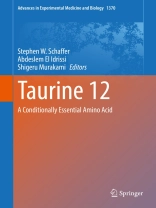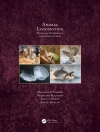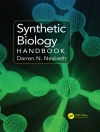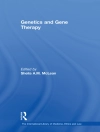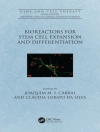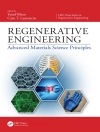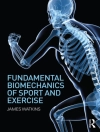This volume gathers a selection of original articles and reviews on timely topics about the application of Taurine in human health written by members of the International Taurine Society, including COVID-19, cancer, heart disease, and diabetes, among others. Chapters are written by Taurine experts across the globe in North and South America, Asia, and Europe. A majority of the articles are based on original studies recently carried out in individual laboratories worldwide. The book is divided into eight parts, each covering a unique aspect of Taurine. Each section will highlight new research findings on Taurine and its application in various human systems, including the nervous system, immune system, and cardiovascular system, to combat disease. The first section covers COVID-19, the dominant health event of 2020. Experts will explore and clarify the potential therapeutic effectiveness of Taurine against COVID-19. The volume will promote further research into the application of Taurinein human health, and will be of use to a wide audience, including basic and clinical scientists, pharmaceutical and nutraceutical companies, and libraries.
Зміст
1. The disease-modifying role of taurine and its therapeutic potential in Coronavirus Disease 2019 (COVID-19).- 2. Examination of taurine chloramine and taurine on LPS-induced acute pulmonary inflammation in mice.- 3. Synergism between taurine and dexamethasone in anti-inflammatory response in LPS-activated macrophages.- 4. Regulation of CXCR4 expression by taurine in macrophage-like cells.- 5. Taurine chloramine inhibits leukocyte migration by suppressing actin polymerization and extracellular signal regulated kinase.- 6. Taurine alleviates LPS-induced acute lung injury by suppressing TLR-4/NFKB pathway.- 7. Intervention effect of taurine on LPS-induced intestinal mechanical barrier injury in piglets.- 8. Current opinion on the therapeutic capacity of taurine containing halogen derivatives in infectious and inflammatory diseases.- 9. Taurine and N-bromotaurine in topical treatment of psoriasis.- 10. Taurine deficiency in tissues aggravates radiation-induced gastrointestinal syndrome.- 11. Taurine and its anti-cancer functions: In vivo and in vitro study.- 12. Taurine supplementation inhibits the expression of Atrogin-1 and Mu RF-1, protein degradation marker genes, in skeletal muscle of C26-induced cachexia mouse model.- 13. Bioavailability of tauropine after oral ingestion in mouse.- 14. Taurine prevents liver injury by reducing oxidative stress and cytochrome c mediated apoptosis in broilers under low temperature.- 15. Effects of taurine on serum indexes of broilers with chronic heat stress.- 16. Antioxidant effect of taurine on chronic heat stressed broilers .- 17. Grading of Japanese diet intakes by 24-hour urine analysis of taurine and soy isoflavones in relation to cardiovascular risks.- 18. Perinatal taurine supplementation preserves the benefits of dynamic exercise training on cardiovascular and metabolic functions and prevents organ damage in adult male exercised rats.- 19. Impaired bile acid synthesis in a taurine-deficient cat model .- 20. Characterization of bone tissue and bone morphology in taurine transporter knockout mice.- 21. Blood taurine dynamics in captive lions: relationship with feed and bile acid composition.- 22. Taurine ameliorates apoptosis via Akt pathway in the kidney of diabetic rats.- 23. Taurine ameliorates oxidative stress in spinal cords of diabetic rats via Keap-Nrf2 signaling.- 24. Assessment of in vitro tests as predictors of the antioxidant effects of insulin, metformin and taurine in the brain of diabetic rats.- 25. Potential binding sites for taurine on the insulin receptor: A molecular docking study.- 26. Dietary protein modulates the efficacy of taurine supplementation on adaptive islet function and morphology in obesity.- 27. Taurine and exercise: Synergistic effects on adipose tissue metabolism and inflammatory processes in obesity.- 28. The taurine conjugated bile acid (TUDCA) normalizes insulin secretion in pancreatic b-cells exposed to fatty acids: Role of mitochondrial metabolism.- 29. Effect of taurine on the regulation of glucose uptake in skeletal muscle.- 30. Differences between physiological and pharmacological actions of taurine.- 31. Taurine and the brain.- 32. Electrophysiological evidence for anti-epileptic property of taurine.- 33. Observation of acupuncture effects on the expression of taurine transporter and taurine in the senescence-accelerated mouse brain: A pilot study.- 34. The regulatory effects of taurine on neurogenesis and apoptosis of neural stem cells in the hippocampus of rats.- 35. Brain-derived neurotrophic factor potentiates entorhinal-dentate but not hippocampus CA1 pathway in adult male rats: A mechanism of taurine-modulated BDNF on learning and memory.- 36. Influences of taurine pharmacodynamics and sex on active avoidance learning and memory.- 37. The effects of dietary taurine-containing jelly supplementation on cognitive function and memory ability of the elderly with subjective cognitive decline.- 38. Effects of dietary taurine-containing jelly supplementation on academic-related characteristics and academic achievement in Korean college entrance examinees: a pilot study .- 39. Improvement in willingness to purchase taurine-containing jelly needs high degrees of interest and preference: focused on Korean college students .- 40. Positive eusocial impacts on ants by taurine derivatives.- 41. Taurine prevents AFB1-induced renal injury by inhibiting oxidative stress and apoptosis .- 42. Taurine-derived compounds produce anxiolytic effects in rats following developmental lead exposure.- 43. Developmental lead exposure in rats causes sex-dependent changes in neurobiological and anxiety-like behaviors that are improved by taurine co-treatment.- 44. In vivo sex-dependent effects of perinatal Pb2+ exposure on pilocarpine-induced seizure susceptibility and taurine neuropharmacology.- 45. Taurine prevents LPS-induced liver injury in weaned piglets.
Про автора
Stephen W. Schaffer is professor emeritus in Department of Pharmacology, College of Medicine, University of South Alabama.
Abdeslem EI Idrissi is a professor in College of Staten Island, Center for Developmental Neuroscience, City University of New York.
Shigeru Murakami is a professor of Biotechnology in the Department of Bioscience at Fukui Prefectural University, Japan.
